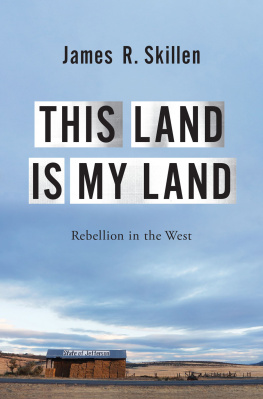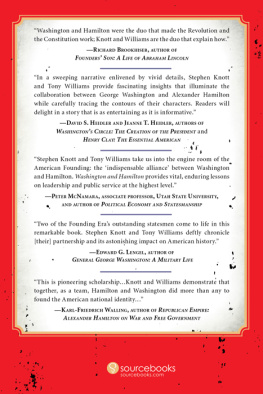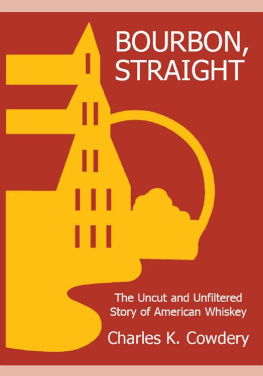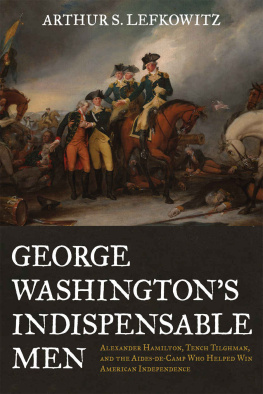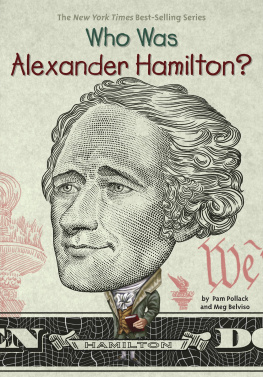William Hogeland - The Whiskey Rebellion: George Washington, Alexander Hamilton, and the Frontier Rebels Who Challenged America’s Newfound Sovereignty
Here you can read online William Hogeland - The Whiskey Rebellion: George Washington, Alexander Hamilton, and the Frontier Rebels Who Challenged America’s Newfound Sovereignty full text of the book (entire story) in english for free. Download pdf and epub, get meaning, cover and reviews about this ebook. year: 2015, publisher: Simon & Schuster, genre: History / Science. Description of the work, (preface) as well as reviews are available. Best literature library LitArk.com created for fans of good reading and offers a wide selection of genres:
Romance novel
Science fiction
Adventure
Detective
Science
History
Home and family
Prose
Art
Politics
Computer
Non-fiction
Religion
Business
Children
Humor
Choose a favorite category and find really read worthwhile books. Enjoy immersion in the world of imagination, feel the emotions of the characters or learn something new for yourself, make an fascinating discovery.
- Book:The Whiskey Rebellion: George Washington, Alexander Hamilton, and the Frontier Rebels Who Challenged America’s Newfound Sovereignty
- Author:
- Publisher:Simon & Schuster
- Genre:
- Year:2015
- Rating:3 / 5
- Favourites:Add to favourites
- Your mark:
The Whiskey Rebellion: George Washington, Alexander Hamilton, and the Frontier Rebels Who Challenged America’s Newfound Sovereignty: summary, description and annotation
We offer to read an annotation, description, summary or preface (depends on what the author of the book "The Whiskey Rebellion: George Washington, Alexander Hamilton, and the Frontier Rebels Who Challenged America’s Newfound Sovereignty" wrote himself). If you haven't found the necessary information about the book — write in the comments, we will try to find it.
A gripping and sensational tale of violence, alcohol, and taxes, The Whiskey Rebellion uncovers the radical eighteenth-century peoples movement, long ignored by historians, that contributed decisively to the establishment of federal authority.
In 1791, on the frontier of western Pennsylvania, local gangs of insurgents with blackened faces began to attack federal officials, beating and torturing the tax collectors who attempted to collect the first federal tax ever laid on an American productwhiskey. To the hard-bitten people of the depressed and violent West, the whiskey tax paralyzed their rural economies, putting money in the coffers of already wealthy creditors and industrialists. To Alexander Hamilton, the tax was the key to industrial growth. To President Washington, it was the catalyst for the first-ever deployment of a federal army, a military action that would suppress an insurgency against the American government.
With an unsparing look at both Hamilton and Washington, journalist and historian William Hogeland offers a provocative, in-depth analysis of this forgotten revolution and suppression. Focusing on the battle between government and the early-American evangelical movement that advocated western secession, The Whiskey Rebellion is an intense and insightful examination of the roots of federal power and the most fundamental conflicts that ignitedand continue to smolderin the United States.
**
From Publishers WeeklySoon after Americans ousted inequitable British taxation, Secretary of Finance Alexander Hamilton, hatched a plan to put the new nation on steady financial footing by imposing the first American excise tax, on whiskey makers. The tax favored large distillers over small farmers with stills in the mountains of Pennsylvania, Maryland and Virginia, and the farmers fomented their own new revolutiona challenge to the sovereignty of the new government and the power of the wealthy eastern seaboard. In a fast-paced, blow-by-blow account of this primal national drama, journalist Hogeland energetically chronicles the skirmishes that made the Whiskey Rebellion from 1791 to 1795 a symbol of the conflict between republican ideals and capitalist values. The rebels engaged in civil disobedience, violence against the tax collectors and threatened to secede from the new republic. Eventually Washington led federal troops to quell the rebellion, arresting leaders such as Herman Husband, a hollow-eyed evangelist who believed that the rebellion would usher in the New Jerusalem. Hogelands judicious, spirited study offers a lucid window into a mostly forgotten episode in American history and a perceptive parable about the pursuit of political plans no matter what the cost to the nations unity. *(Apr.) *
Copyright Reed Business Information, a division of Reed Elsevier Inc. All rights reserved.
Most general U.S. history texts gloss over the Whiskey Rebellion of 1794 as a minor, spasmodic outburst of violence by disgruntled farmers in western Pennsylvania. Not so, says Hogeland. In this uneven but provocative and interesting chronicle, he weaves in themes of class conflict, easterner versus westerner, and local control versus the newly strengthened federal government. This is not a scholarly tome. Hogeland is not a professional historian, and he takes unwarranted liberties by imagining the mental states of characters, including George Washington and Alexander Hamilton. He views the rebellion as the culmination of a peoples movement in which debtors struggled against creditors and poor farmers struggled against a merchant elite and their allies--land speculators. Of course, this is the economic determinism of Charles Beard in the form of a nonfiction novel. Although Hogelands analysis is short on verifiable data, he knows how to tell an exciting story, and some of his assertions are worthy of consideration by serious historians. Brad Hooper
Copyright American Library Association. All rights reserved
William Hogeland: author's other books
Who wrote The Whiskey Rebellion: George Washington, Alexander Hamilton, and the Frontier Rebels Who Challenged America’s Newfound Sovereignty? Find out the surname, the name of the author of the book and a list of all author's works by series.

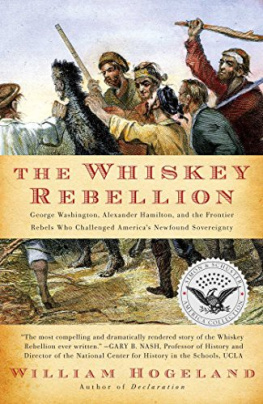

![A. K. ]]> - Rough Diamond: The Life of Colonel William Stephen Hamilton, Alexander Hamiltons Forgotten Son](/uploads/posts/book/377309/thumbs/a-k-rough-diamond-the-life-of-colonel.jpg)
